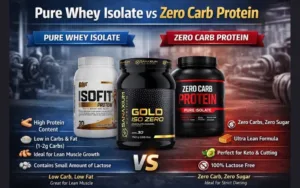No products in the cart.
Return To ShopWhat Are Vitamin Gummies? Benefits, Effectiveness & Safety
Vitamin gummies are chewable dietary supplements designed to provide essential nutrients in a candy-like form. Popular among both adults and children, these supplements offer a tastier and often more enjoyable alternative to traditional pills or capsules. But are vitamin gummies healthy and effective? This expert guide explains everything you need to know about what vitamin gummies are, how they work, and who should consider using them.
Introduction to Vitamin Gummies
Vitamin gummies have surged in popularity over the past decade as a flavorful way to support nutritional health. Shaped and flavored like gummy candies, they’re often enriched with vitamins such as A, C, D, E, and B-complex, along with minerals like zinc and iron.
Their appeal lies in their taste, ease of use, and accessibility—making them especially popular among people who dislike swallowing pills.
How Are Vitamin Gummies Made?
Gummy vitamins are produced similarly to gummy candies but with added nutritional ingredients. The process typically involves:
- Gelatin or plant-based alternatives (like pectin) to create the chewy texture.
- Natural or artificial flavors for taste enhancement.
- Coloring agents to make them visually appealing.
- Vitamins and minerals infused during the mixing process.
Manufacturers may also add stabilizers and sweeteners to ensure shelf stability and taste.
Key Vitamins Commonly Found in Gummies
Vitamin gummies vary in formulation, but commonly include the following nutrients:
| Vitamin/Mineral | Function |
| Vitamin C | Immune support and antioxidant protection |
| Vitamin D | Bone health and calcium absorption |
| Vitamin B12 | Energy metabolism and nervous system support |
| Folate (B9) | Cellular growth and pregnancy support |
| Zinc | Immune function and skin health |
| Iron | Oxygen transport in blood |
Some formulations are multivitamin gummies, while others target specific needs like prenatal care, immunity, or hair and nail health.
Who Should Use Vitamin Gummies?

Vitamin gummies are suitable for a wide range of people, including:
- Children who have difficulty swallowing tablets.
- Adults seeking an easier and tastier supplement experience.
- Elderly individuals with pill fatigue or swallowing issues.
- Vegetarians or vegans, depending on the source of gelatin or nutrients.
- People with nutrient deficiencies diagnosed by a healthcare provider.
However, not everyone may benefit equally. Those on specific diets or with medical conditions should consult a healthcare provider.
Benefits of Vitamin Gummies
The rise in popularity of gummy vitamins isn’t without reason. Key advantages include:
- Better taste and texture than traditional pills
- Improved compliance, especially among kids and elderly
- Easier digestion for some users
- Customizable formulations (e.g., sugar-free, vegan, prenatal)
For many users, switching to chewable vitamins enhances their daily supplement routine and encourages consistent use.
Potential Downsides and Safety Tips
While vitamin gummies offer many benefits, they also come with caveats:
⚠️ Potential Drawbacks:
- Added sugars: Some contain high amounts of sugar or sugar alcohols.
- Overconsumption risk: Tasty flavor can lead to taking more than the recommended dose.
- Nutrient degradation: Gummies may lose potency over time due to heat and light exposure.
- Low bioavailability: Some formulations may be less effective than high-quality tablets.
✔ Safety Tips:
- Always follow the recommended dosage.
- Store gummies in a cool, dry place.
- Choose third-party tested products with clearly labeled ingredients.
Gummies vs. Traditional Vitamin Pills
Here’s a quick comparison:
| Feature | Vitamin Gummies | Vitamin Pills |
| Taste | Pleasant, candy-like | Often bland or bitter |
| Ease of Use | Very easy to chew | May be hard to swallow |
| Sugar Content | Often contains sugar | Usually sugar-free |
| Nutrient Stability | May degrade faster | More stable |
| Portability | Can melt in heat | More durable |
Each form has its place, but gummies excel in compliance and ease, while pills win in potency and shelf life.
Are Vitamin Gummies Effective? What Experts Say
According to the National Institutes of Health (NIH), vitamin gummies can be effective if they contain appropriate doses and are taken correctly. However, some nutritionists warn that:
“Gummy vitamins are often under-dosed and can include unnecessary additives. It’s essential to evaluate the label carefully.” – Registered Dietitian, Mayo Clinic
Research published in the Journal of the American Medical Association (JAMA) emphasizes that while supplements can fill dietary gaps, they should not replace a balanced diet.
How to Choose the Best Vitamin Gummies
When selecting a high-quality gummy vitamin, consider:
- Third-party testing (e.g., NSF, USP, ConsumerLab)
- Transparency of ingredients
- Low sugar content or sugar-free formulas
- Formulation tailored to your age, gender, or health needs
- Allergen-free and vegan options if required
Reading labels is crucial—don’t be misled by flashy branding or vague health claims.
Final Thoughts: Are Vitamin Gummies Worth It?
Vitamin gummies can be a valuable supplement tool—especially for people who struggle with traditional pills. Their effectiveness depends on formulation, dosage, and your individual health needs.
✔ If you’re considering adding them to your daily routine, do so under the guidance of a healthcare professional.
Frequently Asked Questions (FAQs)
Are vitamin gummies as good as pills?
In many cases, yes—especially if properly formulated. However, pills tend to be more stable and may contain higher nutrient levels.
Can you take too many vitamin gummies?
Yes. Overconsumption can lead to vitamin toxicity, particularly with fat-soluble vitamins like A, D, E, and K.
Are there sugar-free vitamin gummies?
Absolutely. Many reputable brands offer sugar-free versions suitable for diabetics or those on low-sugar diets.
Are gummy vitamins safe for kids?
Yes, but dosage must be age-appropriate. Always store them out of reach to prevent accidental overuse.









Add comment